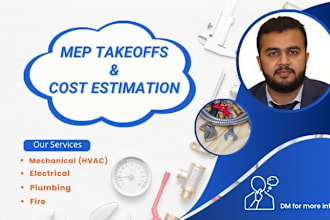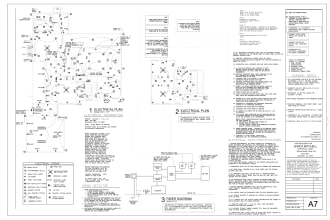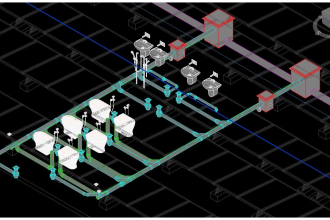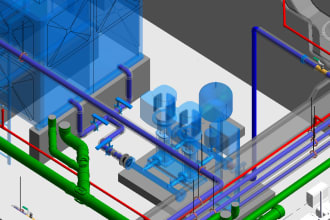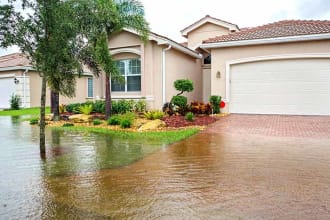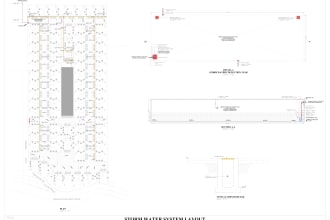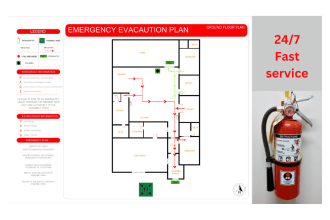Browse categories
Plumbing & Drainage
Expert planning services for plumbing & drainage systems.
|338 Results
Sort by:

Level 2
I will do plumbing and hvac estimation by planswift
From $50
Offers video consultations
Plumbing & Drainage FAQs
What types of projects can a plumbing and drainage engineer work on?
A plumbing and drainage engineer can work on a broad range of projects. This could include designing plumbing and waste disposal systems for residential, commercial, and industrial buildings. They can also work on specialized systems, like those for hospitals, laboratories, or food processing facilities. Other projects might involve the design of municipal sewage systems or stormwater management systems.
How can a plumbing and drainage engineer help with the design of a building's plumbing and drainage system?
A plumbing and drainage engineer can design a system that meets the building's needs for clean water delivery and waste disposal. This includes sizing pipes, specifying fixtures, designing the layout of the system, and ensuring adequate pressure and volume. For the drainage system, they design for effective waste and stormwater removal, preventing backflow, and protecting the building from potential water damage.
What are some common plumbing and drainage code requirements that must be followed in building design?
Common plumbing and drainage code requirements may include specifications for pipe materials and sizes, fixture types and placement, venting requirements, and requirements for the prevention of cross-connections and backflow. Drainage requirements often focus on preventing water accumulation and ensuring the effective removal of waste and stormwater. These codes are intended to protect the health and safety of building occupants and the environment.
How can a plumbing and drainage engineer help ensure a building's plumbing and drainage system is safe and reliable?
A plumbing and drainage engineer ensures safety and reliability by designing systems that meet or exceed code requirements and industry standards. This can include choosing durable materials, providing adequate venting, preventing backflow, and designing for effective waste and stormwater removal. They also consider the building's specific needs and usage patterns to ensure the system can handle the expected demand.
What is the process for obtaining permits for plumbing and drainage work and how can a plumbing and drainage engineer assist with this process?
The process for obtaining permits for plumbing and drainage work usually involves submitting plans and specifications to a local authority for review. A plumbing and drainage engineer can assist by preparing these documents, ensuring they meet all local and national codes and regulations. They can address any questions or concerns from the authority, and make necessary revisions to ensure the plans are approved.
What qualifications and experience should I look for when hiring a plumbing and drainage engineer?
When hiring a plumbing and drainage engineer, you should look for someone with a degree in civil or mechanical engineering or a related field, and specific experience in plumbing and drainage design. Professional licensure or certification can be an important qualification. Also, look for familiarity with the codes and standards applicable to your project and experience with similar types of projects. Good communication skills and a track record of successful project completion can also be key indicators of a good fit.

